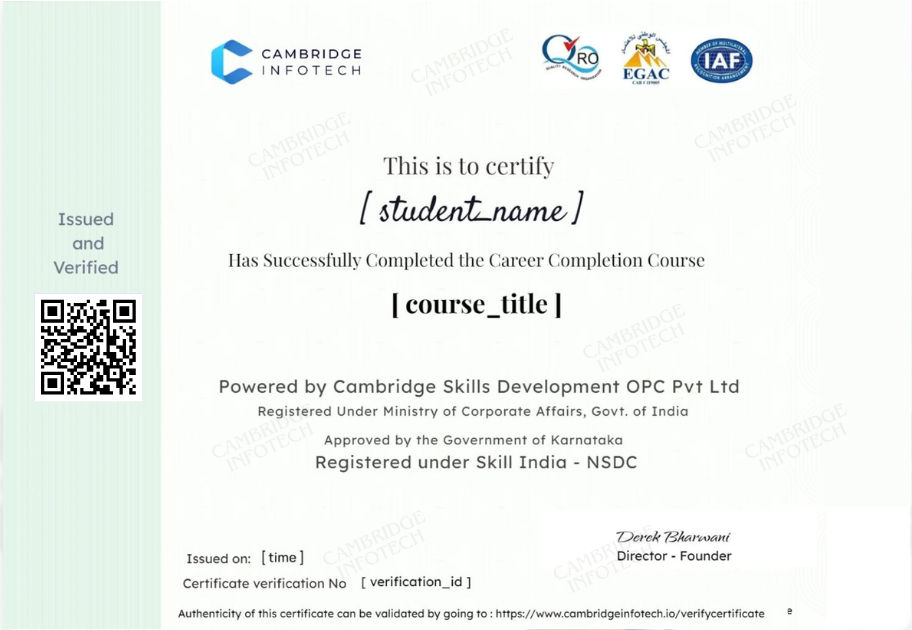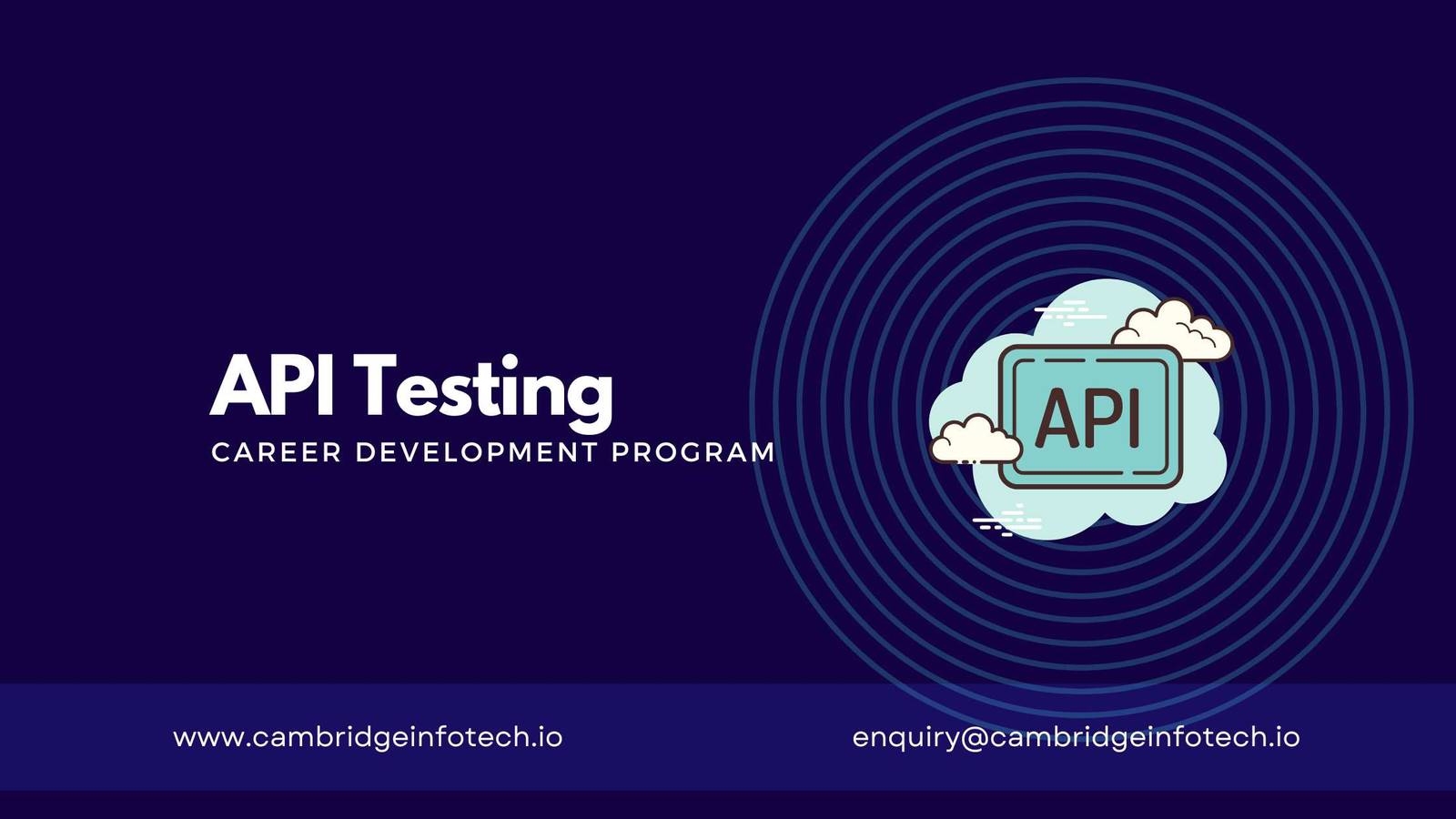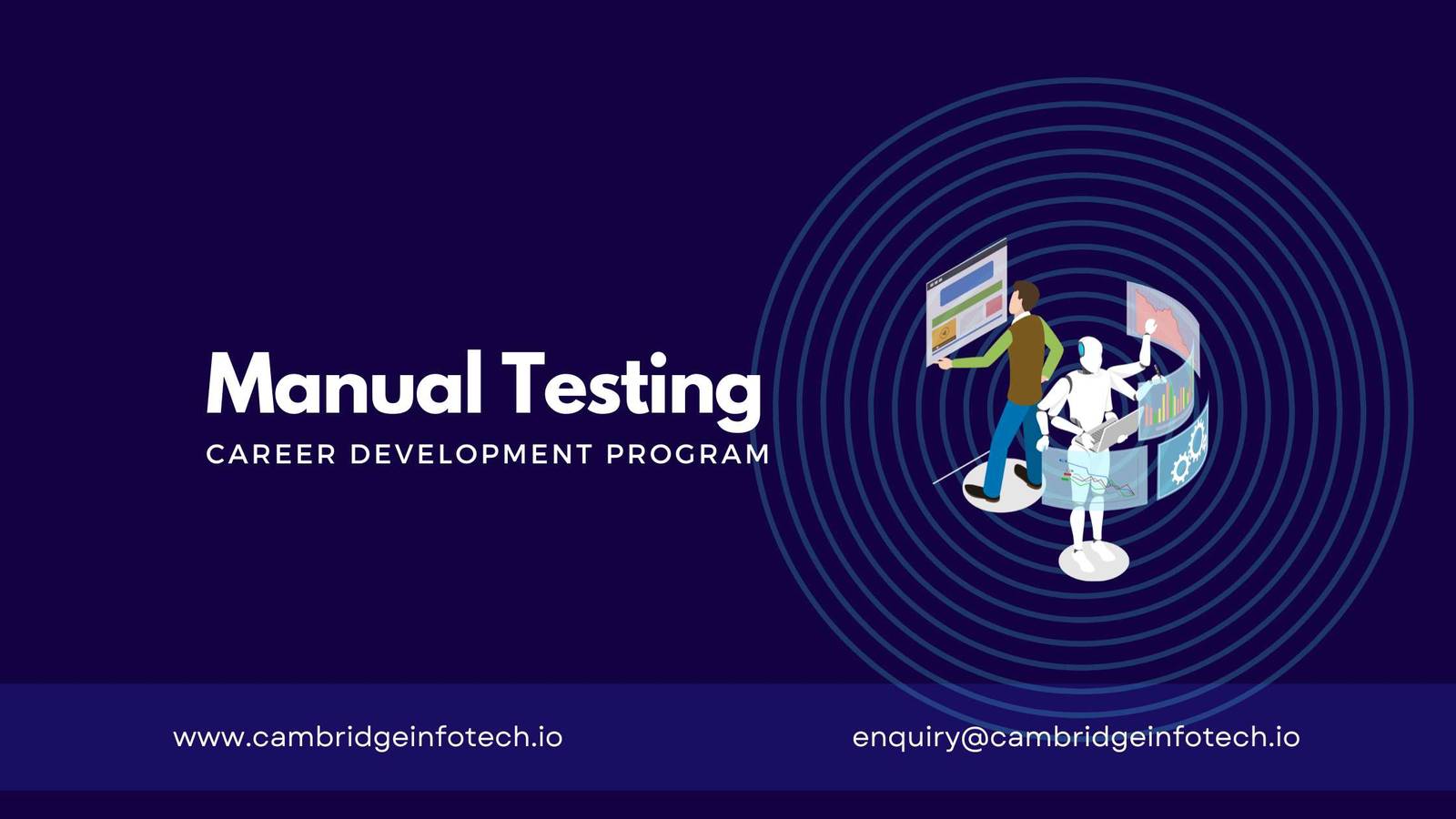Launch Your Automation Testing Career with Bangalore’s Selenium with Java Training
In today’s competitive tech landscape, 85% of Bangalore’s top IT companies are hiring automation testers with Selenium Java skills. Our industry-designed course transforms beginners into job-ready professionals through
Why Cambridge Infotech is Bangalore’s Top Choice for Selenium with Java Training
Industry-Leading Training Methodology
Learn by Doing Approach: 70% hands-on labs (vs. 30% theory) – work on 10+ real projects (FinTech, Healthcare, E-commerce)
Only Institute in Bangalore teaching Selenium + Docker + Jenkins integration for CI/CD pipelines
Resume-building focus: Develop 4 portfolio-worthy automation frameworks during training
Unmatched Placement Support
92% Placement Rate – Highest in Bangalore (2023 data)
Dedicated Placement Cell with 200+ hiring partners (TCS, Accenture, Capgemini)
Guaranteed Interviews for all certified candidates
Expert Trainers with Real-World Experience
10+ year veterans from MNCs like Infosys and Wipro
Authored 3 books on Selenium automation (used in curriculum)
Mentorship Program: 1:1 doubt sessions even after course completion
Bangalore’s Most Comprehensive Curriculum
Advanced Modules: Selenium Grid, Cross-browser Testing, Mobile Automation
Lifetime Access to updated course materials and recorded sessions
Flexible Learning Options
Hybrid Batches: Classroom (HSR Layout) or Online
Weekend/Weekday: Choose slots matching your schedule
Corporate Training: Customized programs for teams
Special Enrollment Benefits
Free LinkedIn Profile Optimization
Mock Interview Package (5 sessions with HR + Tech panels)
Scholarship for early registrations
Who Should Join Our Selenium with Java Course in Bangalore
1. Freshers Looking to Launch IT Careers
Engineering graduates wanting to enter automation testing
Diploma holders targeting ₹3.5LPA+ starting salaries
Career switchers from non-IT fields (with our Beginner’s Bridge Program)
2. Manual Testers Seeking Career Growth
2-5 years experience professionals wanting to:
Transition to automation testing roles (+40% salary hike potential)
Learn Selenium WebDriver + Framework design
Upskill for team lead positions
3. Working Professionals Needing Certification
IT employees requiring:
MNC-recognized certification for promotions
Weekend batches for upskilling without career break
Corporate-sponsored upskilling programs
4. Automation Testers Expanding Skills
Current Selenium users wanting to master:
Advanced frameworks (BDD, Hybrid)
CI/CD integration (Jenkins, Docker)
Mobile automation (Appium basics included)
Why Cambridge Infotech Stands Apart in Selenium with Java Training
Industry-Recognized Excellence
Only Selenium training center in Bangalore with ISO 9001:2015 certification
Awarded Best Emerging IT Training Institute by Times Education (2023)
97% course satisfaction rate across 1,200+ alumni
Job-Focused Training Methodology
Pay After Placement option available (Terms apply)
Real corporate projects from partners like Flipkart, Mercedes-Benz R&D
Daily standup meetings simulating MNC work culture
Unparalleled Placement Support
93% placement rate within 3 months (2023 batch data)
Dedicated placement manager for each student
Guaranteed interview calls from 3+ companies upon certification
Cutting-Edge Curriculum
Bangalore’s most updated syllabus covering:
Selenium 4.0 + Java 17 features
AI-powered test automation tools
DevOps integration (Jenkins, Docker)
Mobile automation (Appium basics)
Learn From the Best
Trainers with 12+ years at companies like:
Flexible Learning Ecosystem
Blended learning: Classroom or Online
24/7 lab access with cloud-based Selenium grid
Lifetime access to updated course materials
Enrollment Bonuses (Limited Time)
ISTQB Foundation Level prep
LinkedIn Optimization session with HR experts
5 mock interviews with real hiring managers
100% Placement Guarantee
Our Unbeatable Placement Record (2023-24)
93% Placement Rate within 3 months of completion
Highest Package: ₹12.5 LPA (Amazon)
Average Salary Hike: 65% for experienced professionals
200+ Hiring Partners including:
[ TCS, Infosys, Accenture, Capgemini, IBM, Wipro, Amazon]
How We Ensure Your Success
Pre-Placement Training
Resume building with ATS optimization
15+ mock interviews (technical + HR rounds)
LinkedIn profile makeover
Exclusive Hiring Events
Placement Protection Plan
7 Compelling Reasons to Learn Selenium with Java in 2025
1. High Demand in the Job Market
42,000+ Selenium jobs in India (Naukri 2024)
73% of automation roles require Selenium + Java
Global opportunities in the US, UK, and Australia
2. Excellent Salary Potential
Freshers: ₹4L – ₹6.5L per annum
3-5 Years Exp: ₹8L – ₹15L per annum
Team Leads/Architects: ₹18L+ per annum
3. Future-Proof Career
AI & DevOps Integration: Selenium is evolving with AI-powered testing tools
CI/CD Pipelines: Jenkins, Docker, and Kubernetes integration
Mobile + Web Automation: Appium + Selenium for full-stack testing
4. Java = Most Stable Language for Automation
Strong Ecosystem: JUnit, TestNG, Maven support
Better Performance: Handles large-scale test suites efficiently
Long-Term Relevance: 28+ years of industry trust54
5. Bangalore’s Booming Automation Market
Top Companies Hiring: Amazon, Flipkart, Accenture, Wipro, Mercedes-Benz
15,000+ Jobs in Bangalore alone (LinkedIn 2025)
6. Easy Transition from Manual Testing
Manual Testers see 60-120% salary hikes after upskilling
Fastest way to enter automation with high success rates
7. Strong Community & Continuous Updates
800K+ GitHub repositories for troubleshooting
learning resources & forums for continuous growth
Career Growth Path
(0-2 Years) Automation Test Engineer (₹4L – ₹6.5L)
(2-5 Years) Senior Automation Engineer (₹8L – ₹15L)
(5+ Years)Test Architect (₹18L – ₹30L+)
(8+ Years) Head of QA (₹35L – ₹60L+)
Limited Seats! Book Your Free Demo Class Now
Call Us- 099024 61116








